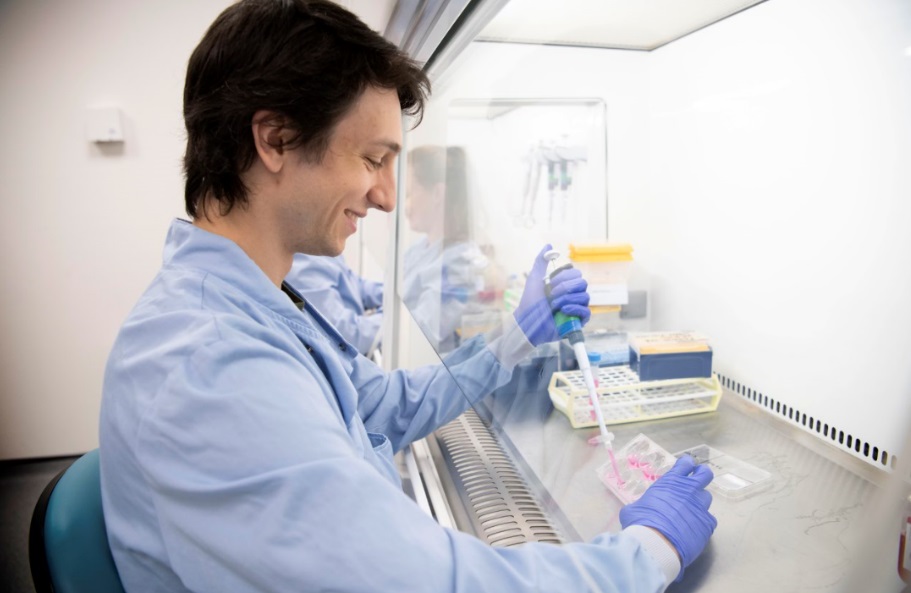Strategy
The strategic aim of the NIHR Cambridge BRC is to be the key vehicle for supporting, delivering and providing leadership in translational research within the NHS, both locally and nationally.
To achieve this, the NIHR Cambridge BRC will work with other NHS organisations and universities, including other NIHR BRCs, research councils, research charities, industry, and patients and the public to embed infrastructure for translational research within the NHS, and pull world-class experimental medicine into the clinic.
To enable and accelerate the health benefits of research, the NIHR Cambridge BRC will:
- Provide within the Cambridge Biomedical Campus world leading infrastructure and opportunities for translational research that will foster partnerships and attract industry
- Focus on areas of high disease burden and clinical need where investigators are at the forefront of their field internationally, and respond to changing priorities identified through internal and external review
- The power of clinical informatics, computational biology and biostatistics to better understand disease and deliver health benefits
- Apply Health Service Research methodologies to experimental medicine, and advance improvements in public health
- Develop capacity for translational research across professions, establishing partnerships for training that build on the outstanding opportunities within and around the Cambridge Biomedical Campus
- Realise the full potential of talent within the workforce by promoting equality and diversity, encouraging staff to engage in research, and provide opportunities for staff within the organisation and the broader research community to develop research skills
- Increase meaningful patient and public involvement and engagement in research through a dynamic partnership between health professionals and the public

Strategic partnerships
The NIHR Cambridge BRC has established many strategic partnerships that have advanced translational research and built capacity in research and support staff.
In 2009 a partnership between University of Cambridge, Cambridge University Hospitals (CUH), Cambridgeshire and Peterborough NHS Foundation Trust (CPFT; specialist mental health service provider) and Papworth Hospital NHS Foundation Trust was designated one of six Academic Health Science Centres by the Department of Health. The move of Royal Papworth Hospital to the Cambridge Biomedical Campus in 2018, and the new Heart and Lung Research Institute create an unparalleled opportunity to create a globally leading environment for cardio-respiratory research, reflected in the establishment of a new theme in Cardiovascular and Respiratory Disease. Partnership with Cambridgeshire and Peterborough Foundation Trust is key to the success of the ‘Mental Health’ and ‘Dementia and Neurodegenerative Disease’ themes.
World-class experimental medicine is enabled by facilities provided by a number of research centres and institutes. These include:
- Cancer Research UK Cambridge Research Institute
- Cambridge Institute for Medical Research
- Institute of Public Health and associated Strangeways Research Laboratory
- Medical Research Council (MRC) Laboratory of Molecular Biology
- MRC and Wellcome Trust Centre for Behavioural and Clinical Neurosciences Institute
- MRC Biostatistics Unit,
- MRC Cancer Unit;
- MRC Cognition and Brain Sciences Unit;
- MRC Epidemiology Unit; Wellcome Trust-MRC Institute of Metabolic Science;
- MRC Mitochondrial Biology Unit
- Wellcome Trust-MRC Cambridge Stem Cell Institute.
The partnership with MRC facilities has been strengthened by execution of an agreement to enable the MRC to access the NIHR Cambridge BRC infrastructure. The NIHR Cambridge BRC benefits from our close proximity to the Wellcome Trust Sanger Institute, one of the world’s leading genome research centres, and the European Bioinformatics Institute.


